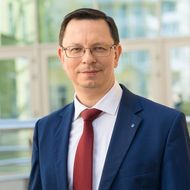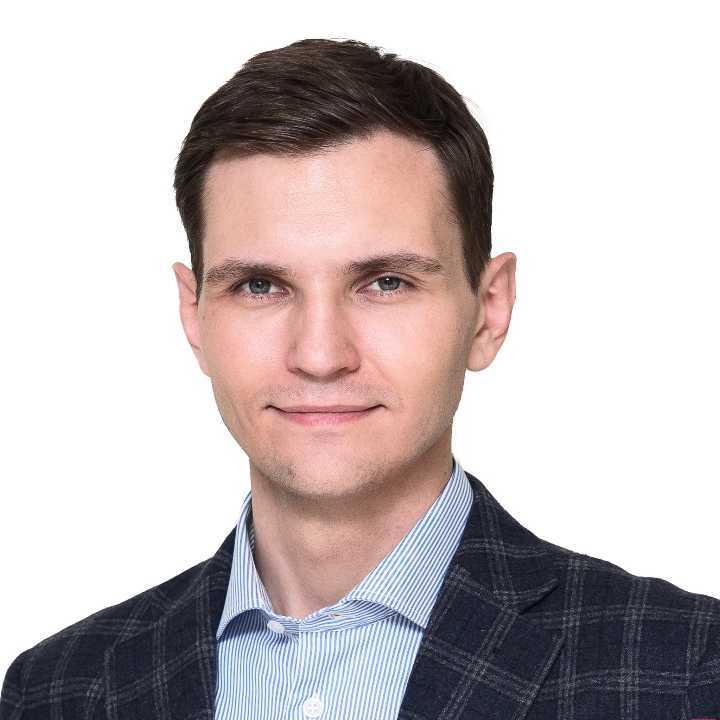Recruitment Campaign 2025: How HSE Attracts Top International Talent

For nearly two decades, HSE University’s international recruitment programmes have brought highly qualified professionals from the global academic job market to Russia—from recent PhD graduates of leading universities to experienced international scholars. On September 1, 2025, the university expects 50 new international faculty and researchers to join its academic team.
The primary aim of international academic recruitment is to form a teaching and research staff capable of carrying out globally recognised research and delivering HSE University’s degree programmes at an internationally competitive level.
The selection process for the 2025 international recruitment campaign concluded in April. Candidates were chosen for two flagship initiatives—the tenure-track international faculty programme and the international postdoctoral fellowship programme. HSE expects to welcome 50 international specialists this autumn: 15 under the tenure-track programme and 35 as international postdocs.
These new colleagues are graduates of PhD programmes at 50 leading universities, including the University of California, Los Angeles (USA), the University of Oxford (UK), Harvard University (USA), the Free University of Brussels (Belgium), the University of Toronto (Canada), the University of Southern Denmark, George Washington University (USA), the University of Pittsburgh (USA), the University of São Paulo (Brazil), the University of Bordeaux (France), Boston College (USA), the Free University of Berlin (Germany), the Indian Statistical Institute, Jawaharlal Nehru University (India), Beijing Institute of Technology (China), and many others.

Nikita Anisimov
HSE Rector Nikita Anisimov highlighted a notable feature of the 2025 recruitment campaign. ‘Of the 15 international specialists joining us on September 1 through the international tenure-track programme, nine—that is 60%—are Russian citizens who graduated from top foreign universities. This confirms that our international recruitment efforts also fulfil an important national goal: they support the return of highly qualified specialists to their homeland, to Russia. We are truly pleased with this result. At the same time, the international postdoctoral fellowship programme continues to attract primarily foreign nationals—graduates of top-tier PhD programmes. This year, the vast majority of those who accepted postdoc offers from HSE hold citizenship from friendly countries,’ shared Nikita Anisimov.
Vice Rector Alexey Koshel also gave details about the selection principles and results of HSE’s 2025 international faculty recruitment campaign.

Alexey Koshel
‘This year, members of the subject-specific selection committees and the International Recruitment Committee faced a welcome challenge: the 2025 campaign attracted an exceptionally strong pool of candidates, both in terms of numbers and academic quality. Applications for the international tenure-track faculty programme nearly doubled compared to 2024. As in previous years, the majority of applications—44%—came from candidates in Economics and Finance. Business & Management and Computer Science followed with 10% each, while Linguistics and International Relations & World Economy each accounted for 6.5% of the applications. The remaining 23% were distributed across other disciplines. It has also become a tradition for some of the strongest international postdocs to transition into the tenure-track programme—this year, three such candidates were selected. Applications for the international postdoctoral programme increased by nearly 25%, and the overall academic profiles of candidates were very strong,’ said the HSE vice rector.
As Alexey Koshel explained, ‘this year’s successful recruitment campaign can be attributed to both a favourable shift in the global academic job market and HSE University’s strong international visibility and reputation as a trusted and respected employer.’
HSE University runs its international recruitment programmes on a competitive basis across all its campuses. The university currently operates several successful initiatives to attract international talent, including the International Tenure-track Programme, the International Postdoctoral Fellowship Programme, the Part-time Seniors scheme for leading international scholars, and the Digital Professors programme. Applications for the Digital Professors programme are submitted online via the programme’s dedicated webpage (in Russian).
See also:
HSE University to Host Second ‘Genetics and the Heart’ Congress
HSE University, the National Research League of Cardiac Genetics, and the Central State Medical Academy of the Administrative Directorate of the President will hold the Second ‘Genetics and the Heart’ Congress with international participation. The event will take place on February 7–8, 2026, at the HSE University Cultural Centre.
HSE University Develops Tool for Assessing Text Complexity in Low-Resource Languages
Researchers at the HSE Centre for Language and Brain have developed a tool for assessing text complexity in low-resource languages. The first version supports several of Russia’s minority languages, including Adyghe, Bashkir, Buryat, Tatar, Ossetian, and Udmurt. This is the first tool of its kind designed specifically for these languages, taking into account their unique morphological and lexical features.
Language Mapping in the Operating Room: HSE Neurolinguists Assist Surgeons in Complex Brain Surgery
Researchers from the HSE Center for Language and Brain took part in brain surgery on a patient who had been seriously wounded in the SMO. A shell fragment approximately five centimetres long entered through the eye socket, penetrated the cranial cavity, and became lodged in the brain, piercing the temporal lobe responsible for language. Surgeons at the Burdenko Main Military Clinical Hospital removed the foreign object while the patient remained conscious. During the operation, neurolinguists conducted language tests to ensure that language function was preserved.
HSE Scientists Use MEG for Precise Language Mapping in the Brain
Scientists at the HSE Centre for Language and Brain have demonstrated a more accurate way to identify the boundaries of language regions in the brain. They used magnetoencephalography (MEG) together with a sentence-completion task, which activates language areas and reveals their functioning in real time. This approach can help clinicians plan surgeries more effectively and improve diagnostic accuracy in cases where fMRI is not the optimal method. The study has been published in the European Journal of Neuroscience.
Transition to Sustainable Development Requires Deep Structural Transformation of Business
A group of researchers has proposed assessing the ESG transformation of businesses through the partner turnover ratio in raw material and distribution supply chains. The researchers note that the path towards sustainability requires a deep and often costly restructuring of partner networks. This and other papers were presented at the Third International Annual Conference ‘ESG Corporate Dynamics: the Challenges for Emerging Capital Markets.’
HSE Researchers Offer Guidance to Prevent Undergraduate Burnout
Researchers at the HSE Institute of Education have identified how much time students should ideally devote to their studies, extracurricular activities, and personal life to maintain strong academic performance without compromising their mental health. An analysis of responses from 2,753 students, combined with their actual academic results, revealed several risk factors—such as excessive homework—as well as positive factors, including sufficient sleep, regular exercise, and moderate participation in projects. Based on these findings, the researchers developed practical recommendations for both students and universities. The paper has been published in the European Journal of Education.
HSE Scientists Contribute to Development of Postquantum Ring Signature for Sber
A new cryptographic data protection mechanism has been jointly proposed by experts from the HSE Tikhonov Moscow Institute of Electronics and Mathematics, Sber, and QApp. The researchers have developed a postquantum ring signature scheme that ensures anonymity (within a defined group of participants), as well as the integrity and authentication of the source of digital transactions, even in the presence of an adversary equipped with a quantum computer.
‘National Symbols of States Are an Integral Part of Cultural Code’
In December 2025, HSE University hosted the first Forum of the BRICS Law Schools Consortium organised by the HSE Faculty of Law. The forum brought together 42 international delegates (including 10 deans) from 14 universities in Belarus, China, South Africa, India, and Indonesia. The programme included expert discussions, the signing of cooperation agreements, and the adoption of decisions on the future areas of activity of the BRICS Law Schools Consortium, which was established at the initiative of the HSE Faculty of Law.
When a Virus Steps on a Mine: Ancient Mechanism of Infected Cell Self-Destruction Discovered
When a virus enters a cell, it disrupts the cell’s normal functions. It was previously believed that the cell's protective response to the virus triggered cellular self-destruction. However, a study involving bioinformatics researchers at HSE University has revealed a different mechanism: the cell does not react to the virus itself but to its own transcripts, which become abnormally long. The study has been published in Nature.
Researchers Identify Link between Bilingualism and Cognitive Efficiency
An international team of researchers, including scholars from HSE University, has discovered that knowledge of a foreign language can improve memory performance and increase automaticity when solving complex tasks. The higher a person’s language proficiency, the stronger the effect. The results have been published in the journal Brain and Cognition.


